Tremors
(Temblores)
Jayro Bustamante / France, Guatemala, Luxembourg / 2019 / 107 min

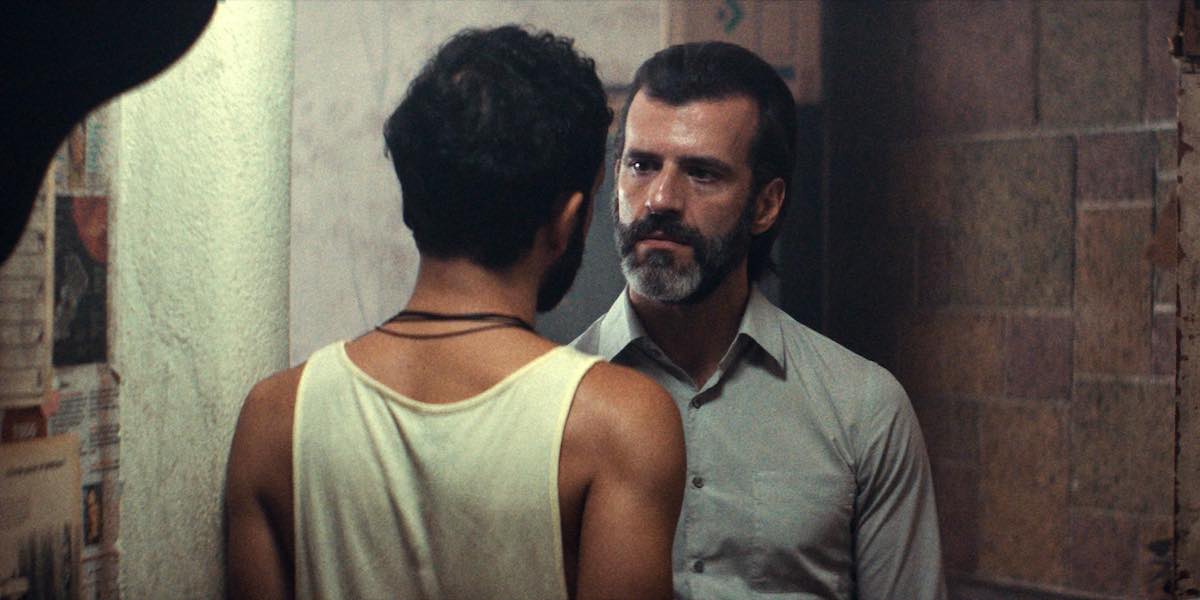
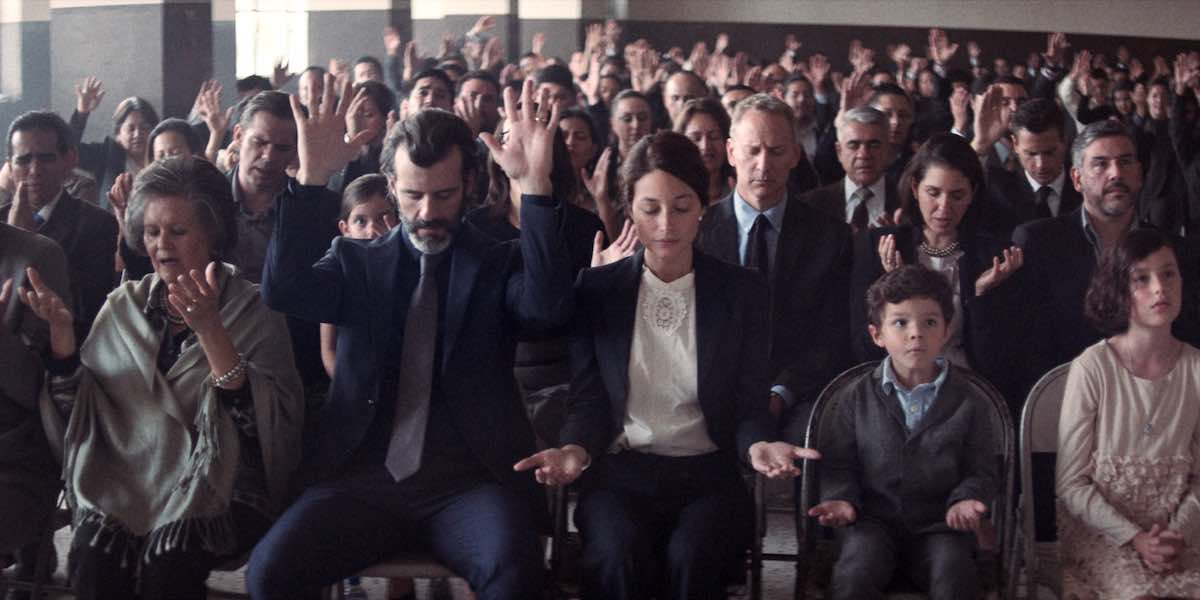
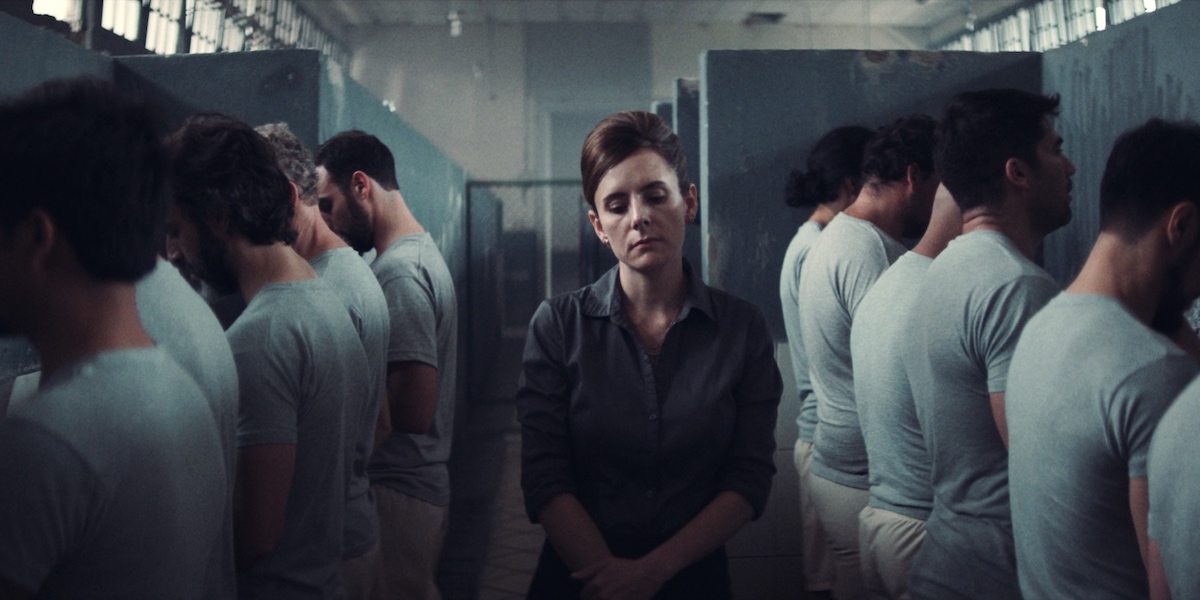
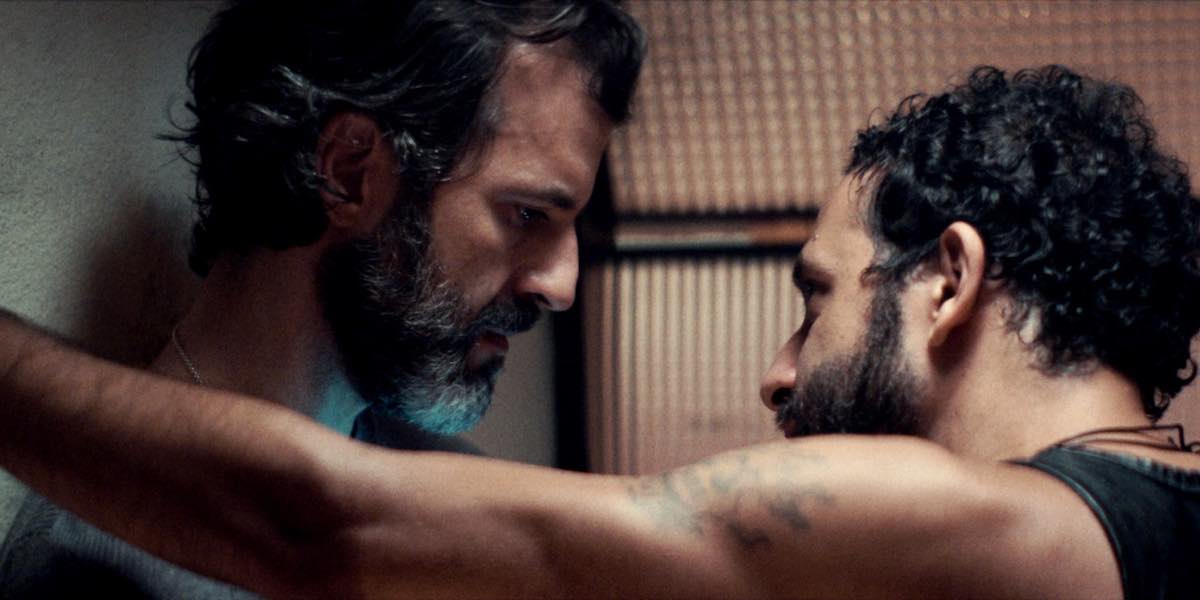
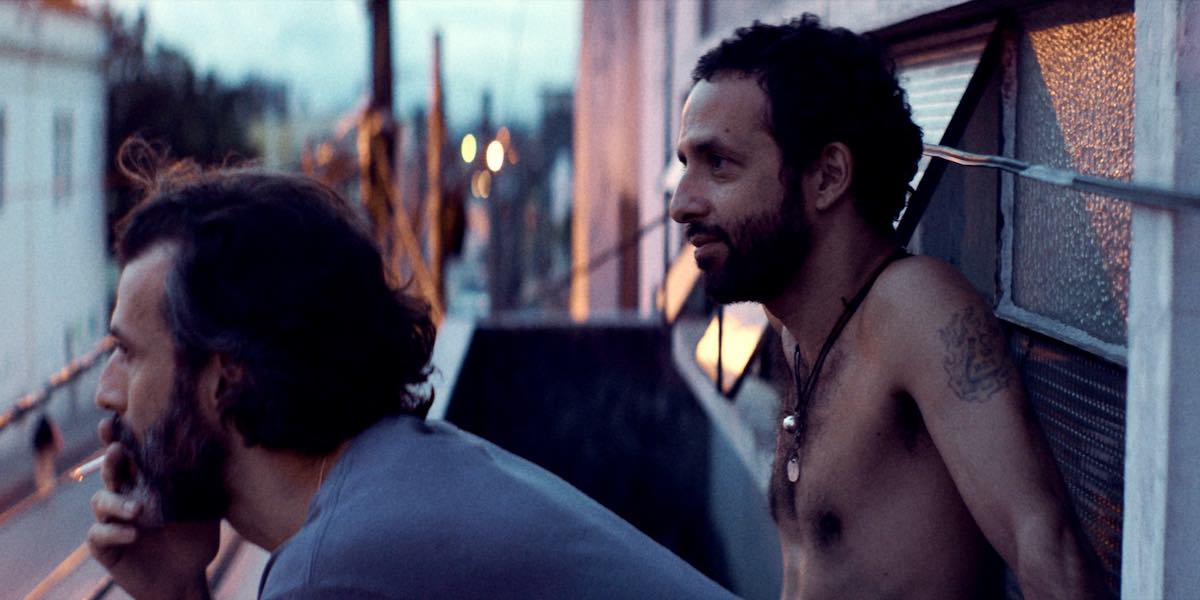
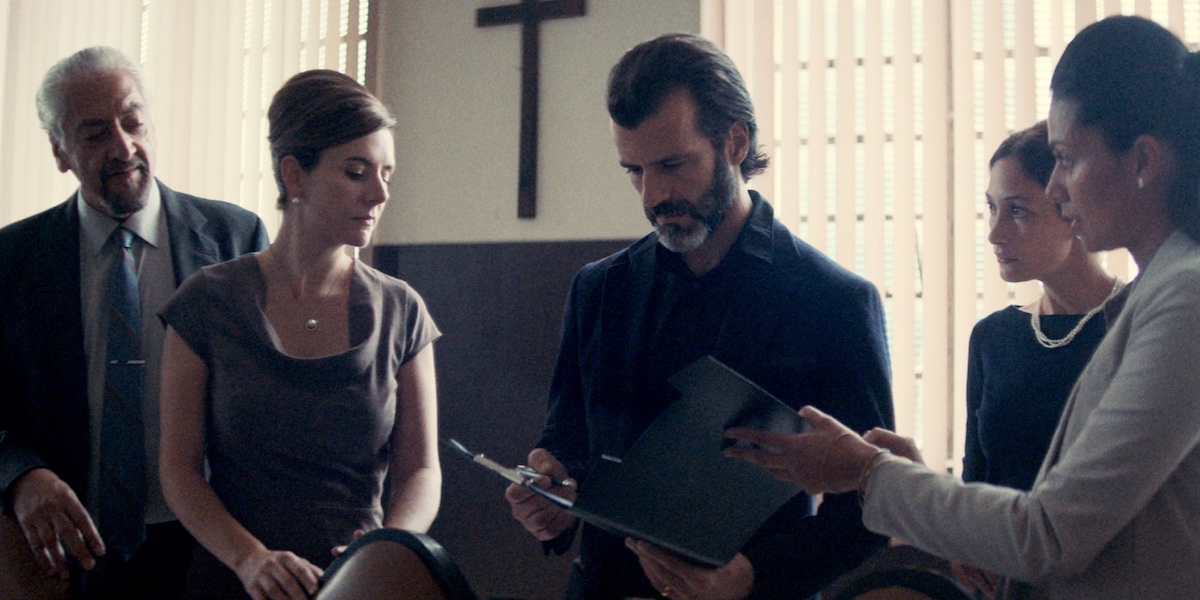
San Sebastián Int'l Film Festival
Best Latin American FilmGuadalajara Int'l Film Festival
Best CinematographyNewFest
Grand Jury Prize, Narrative FeatureOutfest L.A.
Best Performance in an International FeatureToulouse Latin America Film Festival
Audience AwardCosta Rica Int'l Film Festival
Best Central American FilmMadrid Int'l LGBTI Film Festival
Jury Prize for Best ScreenplayBerlin International Film Festival
Miami Film Festival
Spanish Film Club
Related Films
 Alice Junior(Alice Júnior)Gil BaroniAlice Júnior is a carefree, spoiled trans YouTuber with everything she could ask for: an apartment in a cool beach town, a loving dad, her own advice ...
Alice Junior(Alice Júnior)Gil BaroniAlice Júnior is a carefree, spoiled trans YouTuber with everything she could ask for: an apartment in a cool beach town, a loving dad, her own advice ... My Name is Gennet(Mi nombre es Gennet)Miguel Ángel TobíasBased on a true story, this poignant and inspirational film follows the life of Gennet Corcuera, from her childhood in extreme poverty in Ethiopia to her ...
My Name is Gennet(Mi nombre es Gennet)Miguel Ángel TobíasBased on a true story, this poignant and inspirational film follows the life of Gennet Corcuera, from her childhood in extreme poverty in Ethiopia to her ... Machuca(Machuca)Andrés WoodACADEMY AWARD® CHILE’S SUBMISSION FOR BEST FOREIGN LANGUAGE FILM SECTION MODERN CLASSICS The story takes place in Santiago in 1973 in the days ...
Machuca(Machuca)Andrés WoodACADEMY AWARD® CHILE’S SUBMISSION FOR BEST FOREIGN LANGUAGE FILM SECTION MODERN CLASSICS The story takes place in Santiago in 1973 in the days ... On This Side of the World(A este lado del mundo)David TruebaOn This Side of the Wall is a deep and global look at migrations, borders, and the most insurmountable walls erected by mankind. Alberto, a dull and ...
On This Side of the World(A este lado del mundo)David TruebaOn This Side of the Wall is a deep and global look at migrations, borders, and the most insurmountable walls erected by mankind. Alberto, a dull and ...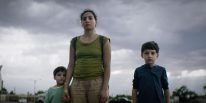 Los Lobos(Los Lobos)Samuel Kishi LeopoFollowing his success with We Are Mari Pepa, director Samuel Kishi Leopo approaches a more personal topic in the moving autobiographical film. With ...
Los Lobos(Los Lobos)Samuel Kishi LeopoFollowing his success with We Are Mari Pepa, director Samuel Kishi Leopo approaches a more personal topic in the moving autobiographical film. With ...Synopsis
Spanish with English subtitles
With Juan Pablo Olyslager, Mauricio Armas, Diane Bathen, María Telón
In this deeply personal follow-up to his landmark debut Ixcanul, Jayro Bustamante shifts his focus from rural Guatemala to the denizens of Guatemala City, but once again sets his sights on an individual caught between two seemingly irreconcilable worlds.
When handsome and charismatic Pablo arrives at his affluent family’s house everyone is eagerly awaiting the return of their beloved son, devoted father, and caring husband. A seemingly exemplary pillar of Guatemala City’s Evangelical Christian community, Pablo’s announcement that he intends to leave his wife for another man sends shock waves through the family. As Pablo tries to acclimate to his new life in the city’s gay subculture with the liberated Francisco, his ultra-religious family does everything in its power to get their prodigal son back on track, no matter the cost.
As he is further blacklisted from social circles, fired from his job for breaching his firm’s “flawless moral code,” and increasingly desperate to see his two children, Pablo quietly submits to a brutal conversion-therapy regimen, leading to a moral and emotional tipping point against the reality of life within a deeply religious culture. In a deeply repressive society, God loves the sinner, but not the sin itself.
Related Subjects
About the Director
Returning to Guatemala in the early 2010s, he made his first films and was a pioneer in a country where the film industry was non-existent. Recognition soon followed as the 2015 Berlinale awarded the Alfred Bauer Prize for his first feature film Ixcanul. This dive into the land of his childhood evokes the discrimination suffered by the Mayan community. It is also – with Temblores in 2017 and La Llorona in 2019 – the first part of a trilogy that tackles the taboos of Guatemalan society.
Press
“A prodigiously gut-wrenching demand for change; the film isn’t kindly asking for tolerance but bluntly exposing the torment inflicted in the name of a prejudiced God. It’s a magnificently unflinching film from a master director in the making, whose thunderous strength will surely make waves in Bustamante’s Central American homeland and abroad.” – Carlos Aguilar, The Wrap
“Vividly imagined… Bustamante renders the film’s distinct milieus with extraordinary texture. ” – Devika Girish, The New York Times
“A thoughtful, emotionally-charged exploration of a devoutly religious family man torn apart by the revelation of his love for another man.” – Allan Hunter, Screen Daily
“There are any number of movies about gay men trying to liberate themselves from the long shadow of heteronormative oppression ... but few have been told with the extraordinary nuance or compassion of Jayro Bustamante’s Tremors. Grade: A-” – David Ehrlich, IndieWire
“As the latest in a long line of films to examine the hypocrisy-laden clash between gay rights and evangelical Christian ethos ... this strong second feature from Guatemalan talent Jayro Bustamante doesn’t ask new questions, but its sensuous, reverberating atmospherics find fresh, angry ways to answer them. ” – Guy Lodge, Variety
“[A] penetrating, mournful portrait of sexual identity....” – Michael Rechtshaffen, LOS ANGELES TIMES
“Temblores is consistently downbeat and filmed in a muted color palette, but Bustamante incorporates some unexpected twists and turns, and the entire cast, including Pablo's crisply efficient pastor (Sabrina De La Hoz), rises to the occasion. Recommended.” – K. Fennessy, Video Librarian
Notes on the Film
“It was a very deeply personal story for me, but not because it’s a bio or something like that. It’s just that the research period was very complicated and the people I was talking to were suffering a lot. I became a kind of catharsis for these people. The film became a treatment for them. They were very upset because a lot of time I was not really nice; I needed to confront them, saying to them, ‘It’s normal that your wife isn’t very happy because you are lying to her, and you’ve built a facade.’ They were very upset about that because they wanted to complain and to be understood. I wanted to push them to be responsible for their decisions. None of them came out by themselves. They were discovered by their families. The responsibility of telling these people’s stories is what made it personal to me.
I was trying to show that all these people, even if they are pushing somebody that they love to be hurt by an institution or by the church. Even if they hurt their own sons. They are doing that out of love. And this kind of extreme way to love was interesting to me. Normally, we have the stereotype that mothers are more understanding and they are always protecting their children and fathers are more macho and aggressive. In my research, the majority of the fathers were more pacifist. But the mothers were very upset as if the homosexuality of their sons was their responsibility and they had to change it. I wanted to show that because we have a different idea about a mother’s love.”
– Jayro Bustamente, interview by Murtada Elfadl